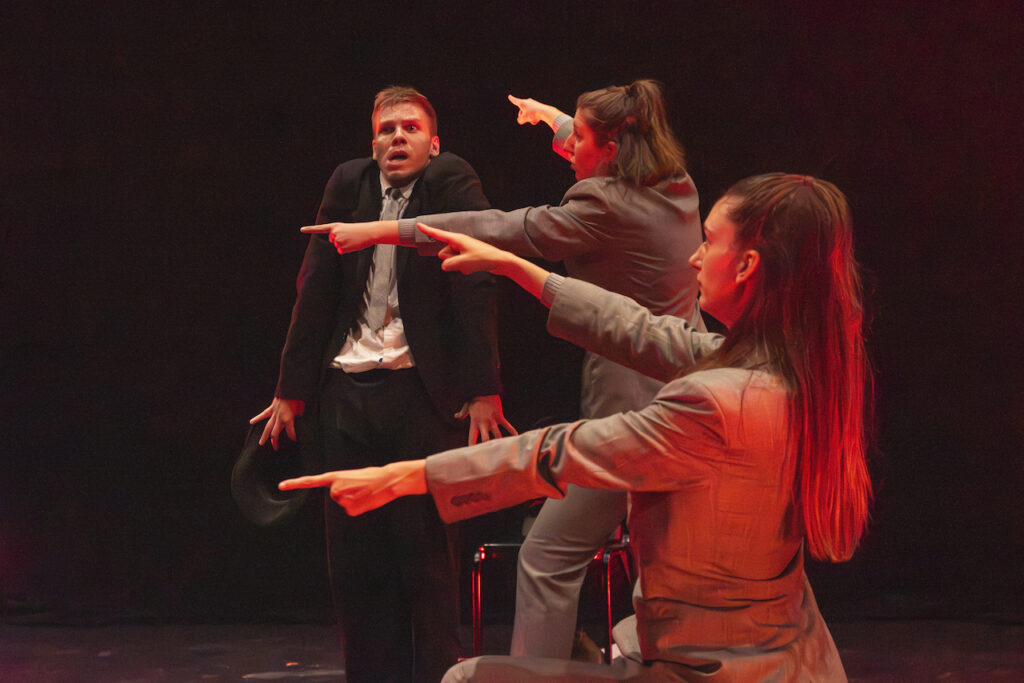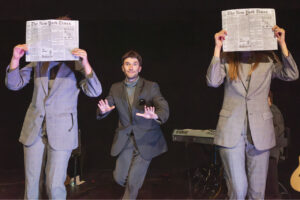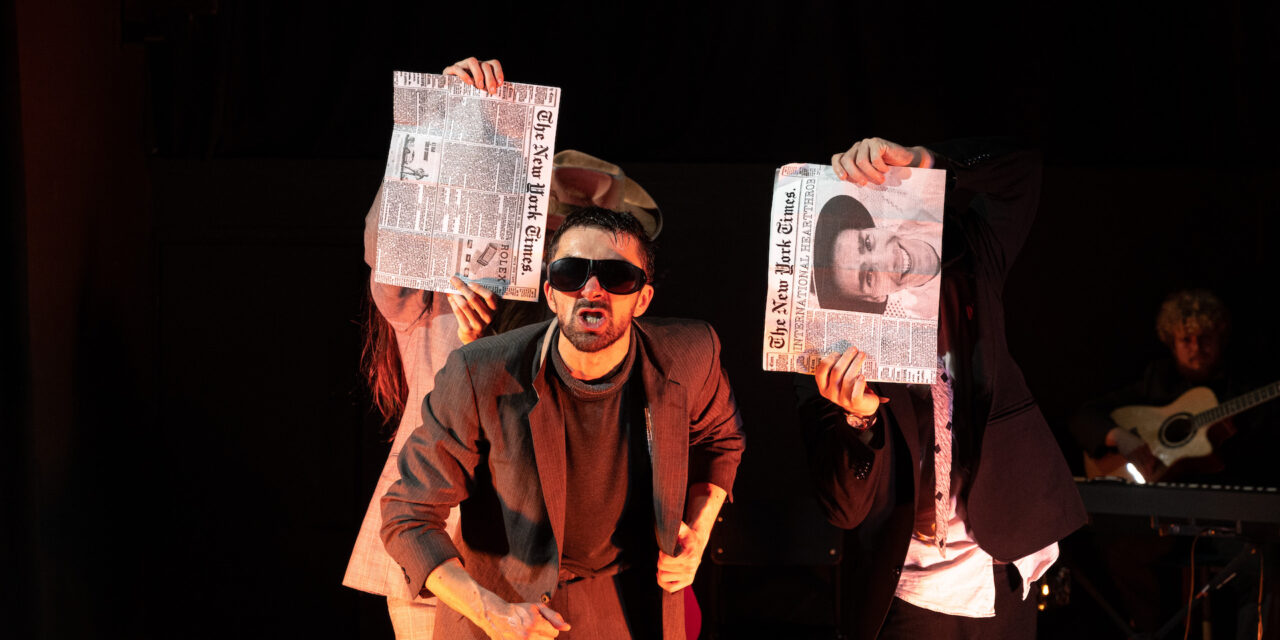
24 – 26 April
Co-artistic directors and performers Olivia Zerphy, Emily Wheatman, Paul Lofferon, and understudy Alexander Burnett (appearing impressively for this performance after only three days’ notice), and supported by musician Jonny Venvell on keys, drums, guitar and harmonica, were tonight’s iteration of the Voloz Collective International Physical Theatre.
Formed in 2019, the original collective met at the École Internationale de Théâtre Jacques Lecoq in Paris (now based in Avignon). Founded in 1956, the school offers an intensive two-year course emphasizing the body, movement and space as entry points in theatrical performance, preparing its students to create collaboratively.
During a two-week stay at a farm in Vermont, the group drew on classic cinematic moments from favourite directors Alfred Hitchcock and Wes Anderson to construct a madcap piece, set in 1963 during the Cold War, that could feature their physical theatrical skills, with mime and improvisation very much part of the mix. The Man Who Thought He Knew Too Much was the result. The show has been touring internationally to great acclaim since its launch at the Edinburgh Fringe three years ago.
New York-based French copywriter Roger finds himself seemingly the target of a Russian spy network as he seeks to unravel the meaning of a mysterious coded message he stumbles across, leading him on a mad dash across continents to find the meaning. Paul Lofferon brings enormous energy to the role, whether gasping his way to the surface of the ocean, or being shaken during a rocket lift-off, Lofferon provides a visual centre of gravity throughout. Around him, Emily Wheatman’s transformation from mousy American secretary is a treat and Olivia Zerphy’s beguiling Russian agent is arresting, with her bright red hat and lipstick cutting through an otherwise blackened stage area. Stand-in Alexander Burnett impressed as a dark-glasses-wearing Russian hitman and doubling, like the rest of the cast, as ‘human scenery’, in his case, hilariously, as tumbleweed rolling across the stage.
The show is enormous fun to witness, particularly the facial expressions and the circus athleticism of some of the action – and the pace never drops. Facsimile newspaper front pages are turned into windows, doors or birds. Bodies interlock to become a bed, a parachute, a saloon or the shuddering fuselage of rocket mid-launch. If we are somewhat bamboozled by the speed at which scenes change as our hero ricochets around the globe, the construction of each scene remains entrancing. This is physical theatre at its best. While the narrative is sometimes hard to follow, suspending disbelief in the interests of simply enjoying a parade of wonderfully expressionist movements seems to help, urged on by Venvell’s colourful musical prompting.

At the Q&A after the show, we learned that the narrative process for The Man Who… came second to the process of curating sequences of dramatic ‘tableaux’ – shoot-outs in slo-mo, floating weightless in a Russian rocket, swimming underwater, trudging through Siberian snow, landing on the roof of a moving train – all highlighting the group’s physical theatrical prowess. However, while the methodology was always riveting, the storytelling could feel confused, particularly near the end, when a re-imagining of the fate of John F Kennedy takes over the tale. In their new show, The Life Sporadic of Jess Wildgoose, as much thought, we are told, is going into the telling as well as the showing. This will represent something of a coming of age, a refinement to what Voloz offer, and should be well worth seeing when it launches.
★★★★☆ Simon Bishop, 25 April 2025
Photography credit: Matthieu Ponchel, Bob Perkoski


